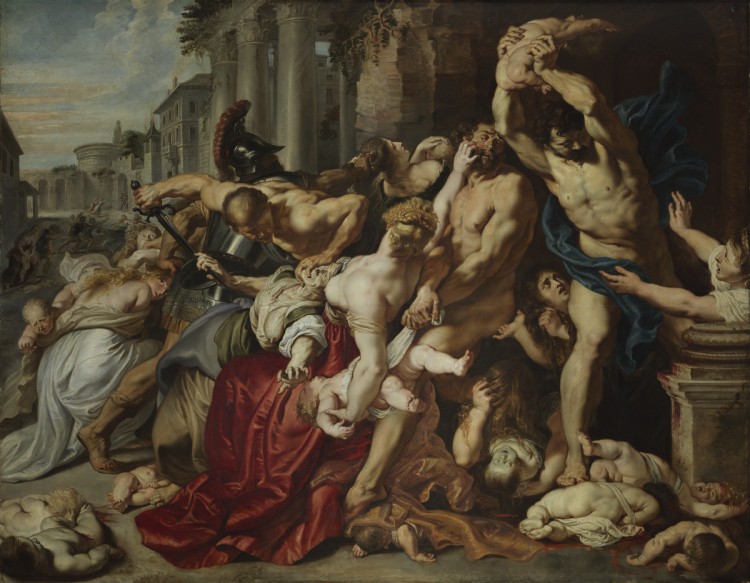A homecoming for Rubens
This fall, Peter Paul Ruben's The Massacre of the Innocents will return to Antwerp for its European museum debut — in the studio where it was painted.

In the 400 years since its creation, The Massacre of the Innocents has crossed oceans and mountain ranges, survived wars, been lost and found, and set an auction record. But the painting has never been exhibited in a European museum.
That will change on September 26, when this masterpiece in the AGO Collection will be on view in Antwerp at the Rubens House, the artist’s home and studio.
“The prospect of seeing The Massacre of the Innocents displayed in Peter Paul Rubens’s studio, where it was painted, is exhilarating. It will transport Antwerp audiences and Rubens’s scholars back in time, inspiring important conversations about this artist’s life and ambition,” said Dr. Sasha Suda, the AGO’s Curator of European Art.
Peter Paul Rubens, Flemish painter, draughtsman, humanist and diplomat, was the most influential figure in Baroque art in northern Europe. He created The Massacre of the Innocents around 1610, after returning from Italy, where he absorbed the influences of the masters of the Renaissance and contemporary artists as well as Italian classical sculpture and architecture.
Dramatic in size and subject, The Massacre of the Innocents measures over 1.37 x 1.82 metres. The painting depicts the killing of infants ordered by King Herod. We caught up with our Curator of European Art, Dr. Sasha Suda, to learn more about this incredible work and its history. Watch the interview here.
After its voyage to Antwerp, the painting will be part of a major international exhibition on the early period of Rubens’s career. Conceived by the AGO and organized with the Legion of Honour Museum, San Francisco, this fascinating exhibition is scheduled to open in both museums in 2019. Stay tuned for more details!

